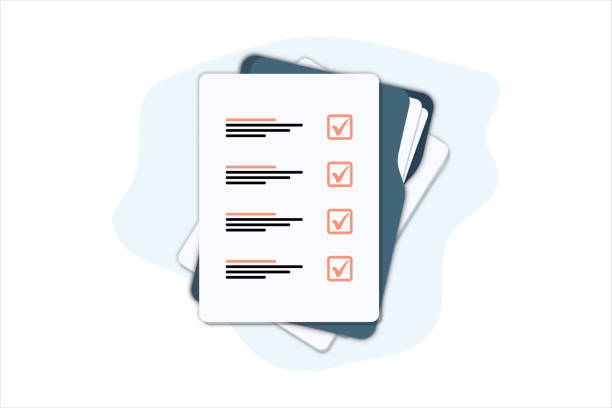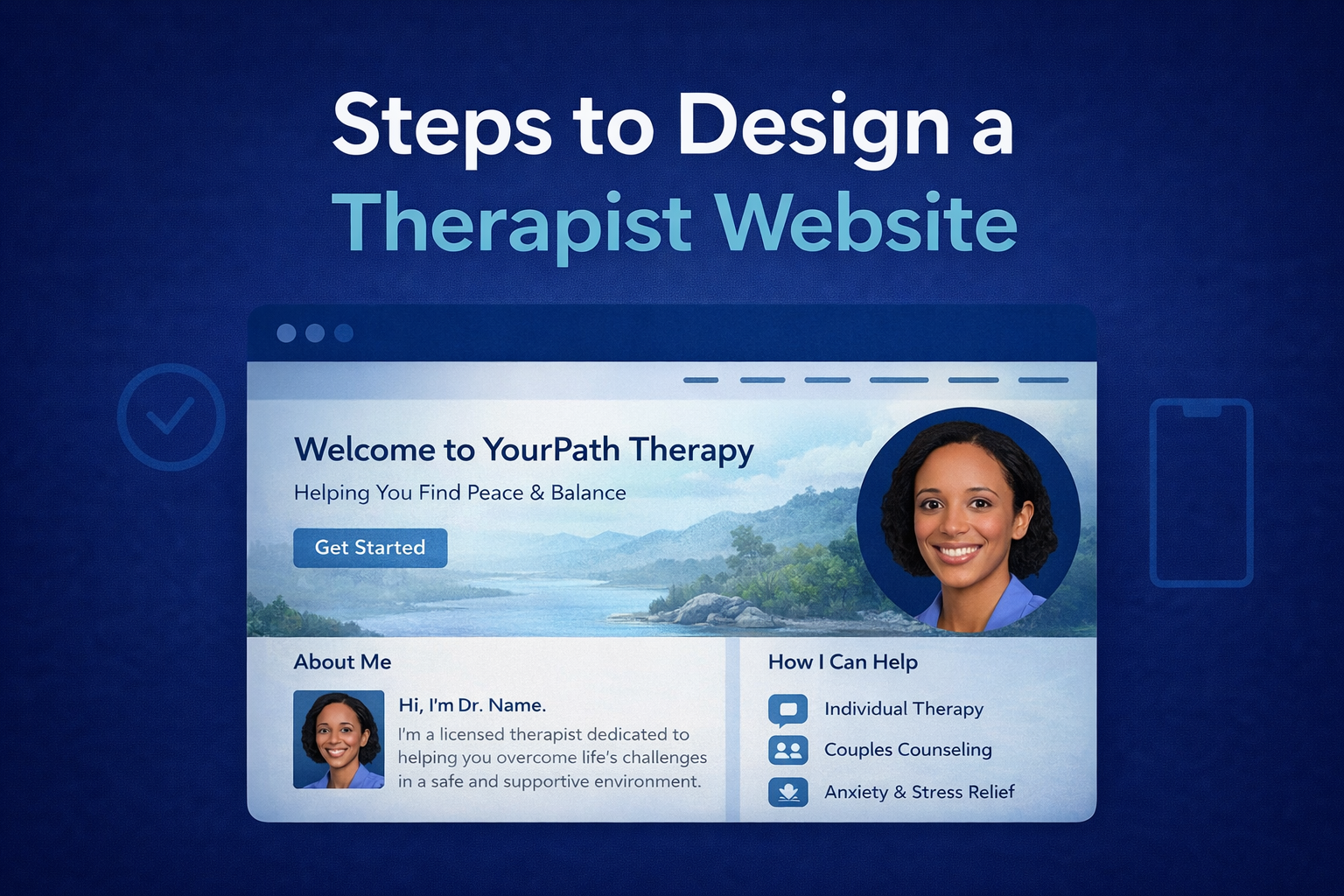Digital intake forms are transforming the onboarding process for new counseling clients, making it easier, more accessible, and less stressful to begin therapy. By replacing cumbersome paper forms with secure, user-friendly online alternatives, these tools streamline data collection while addressing client anxieties and ensuring HIPAA compliance.
Why Digital Intake Forms Matter for New Counseling Clients
Starting therapy can be daunting for new clients, who may feel overwhelmed by paperwork, privacy concerns, or uncertainty about the process. Digital intake forms address these challenges by offering a convenient, secure, and accessible way to provide personal and medical information. They help:
- Reduce Anxiety: Simplify onboarding with clear, intuitive interfaces.
- Enhance Accessibility: Support diverse clients, including those with disabilities or language barriers.
- Ensure Privacy: Protect sensitive data with HIPAA-compliant security.
- Build Trust: Demonstrate professionalism and care through streamlined processes.
This guide outlines how digital intake forms alleviate stress and improve the client experience.
How Digital Intake Forms Reduce Stress
1. Simplified and User-Friendly Design
How It Helps: Complex paper forms can overwhelm new clients, especially those with anxiety or cognitive challenges. Digital forms offer intuitive interfaces that guide users step-by-step.
Key Features:
- Clear Instructions: Use plain language to explain each section, e.g., “Tell us about your mental health history.”
- Progress Indicators: Show completion percentage to reduce uncertainty.
- Save-and-Resume Functionality: Allow clients to complete forms at their own pace.
Stress Reduction:
- Minimizes confusion with straightforward prompts.
- Reduces pressure to complete forms in one sitting.
- Empowers clients with control over the process.
2. Accessibility for Diverse Needs
How It Helps: Digital forms cater to clients with disabilities, low tech literacy, or language barriers, reducing barriers to entry.
Key Features:
- Mobile-Friendly Design: Responsive layouts for smartphones and tablets.
- Screen-Reader Compatibility: ARIA landmarks and semantic HTML for accessibility.
- Voice Input Options: Allow clients with motor impairments to dictate responses.
Stress Reduction:
- Enables independent completion for clients with visual or motor challenges.
- Supports non-English speakers with multilingual forms (e.g., Spanish).
- Reduces frustration with user-friendly, inclusive interfaces.
For accessibility tips, see mobile-friendly websites for psychologists.
3. Flexible Completion Options
How It Helps: Unlike paper forms requiring in-person or mailed submission, digital forms offer flexibility, allowing clients to complete them anytime, anywhere.
Key Features:
- Online Access: Complete forms via secure portals before the first session.
- Offline Alternatives: Provide downloadable PDFs for clients with limited internet.
- Auto-Save Functionality: Prevent data loss if clients pause or lose connection.
Stress Reduction:
- Eliminates the need for rushed, in-session paperwork.
- Accommodates busy schedules or limited internet access.
- Reduces worry about losing progress during completion.
4. HIPAA-Compliant Security and Privacy
How It Helps: Privacy concerns can heighten stress for new clients sharing sensitive information. Digital forms with robust security reassure clients about data protection.
Key Features:
- End-to-End Encryption: Use AES-256 encryption for data transmission and storage.
- Signed BAA: Platforms like SimplePractice or JotForm offer Business Associate Agreements (BAAs).
- Minimal PHI Collection: Limit questions to essential information only.
Stress Reduction:
- Builds confidence with secure, HIPAA-compliant systems.
- Reduces fear of data breaches or unauthorized access.
- Aligns with ethical standards, fostering trust.
For compliance guidance, see HIPAA-compliant tools for mental health counseling.
5. Clear Informed Consent Process
How It Helps: Transparent consent forms reduce uncertainty by clearly explaining therapy processes, confidentiality, and data use.
Key Features:
- Plain Language Consent: Explain therapy risks, benefits, and HIPAA rights simply.
- Digital Signatures: Allow electronic signing for convenience.
- Multilingual Options: Offer consent forms in languages like Spanish.
Stress Reduction:
- Clarifies expectations, reducing anxiety about the unknown.
- Ensures clients feel informed and empowered.
- Supports diverse clients with accessible language options.
For form best practices, explore best online intake forms for therapy practices.
6. Integration with Practice Systems
How It Helps: Seamless integration with scheduling or EHR systems reduces client effort and streamlines the onboarding process.
Key Features:
- EHR Syncing: Connect forms to platforms like TherapyNotes for automatic data transfer.
- Scheduling Links: Enable direct booking after form completion.
- Secure Payment Options: Integrate with HIPAA-compliant gateways like Stripe.
Stress Reduction:
- Eliminates repetitive data entry across platforms.
- Speeds up the transition from intake to first session.
- Simplifies payment processes, reducing logistical stress.
For scheduling solutions, see AI-powered appointment scheduling.
7. Personalized and Dynamic Questions
How It Helps: Tailored questions reduce overwhelm by focusing on relevant information, making the process feel more individualized.
Key Features:
- Conditional Logic: Show questions based on responses, e.g., teletherapy details for virtual clients.
- Customizable Fields: Include prompts for specific needs, like anxiety symptoms or therapy goals.
- Empathetic Tone: Use supportive language, e.g., “We’re here to help you feel comfortable.”
Stress Reduction:
- Avoids irrelevant or overwhelming questions.
- Makes clients feel understood and valued.
- Enhances engagement with a client-centered approach.
Benefits of Digital Intake Forms for New Clients
- Reduced Anxiety: Clear, flexible forms ease the onboarding process.
- Enhanced Accessibility: Support diverse clients with mobile, voice, and multilingual options.
- Increased Trust: HIPAA-compliant security and transparent consent build confidence.
- Improved Efficiency: Streamlined processes save time for clients and therapists.
- Better Outcomes: Accurate, tailored data supports personalized treatment plans.
Challenges and Solutions
Challenge: Client Tech Literacy
Solution: Offer tutorials, phone support, or PDF alternatives for clients unfamiliar with digital tools.
Challenge: Ensuring HIPAA Compliance
Solution: Use platforms with BAAs and encryption, and conduct regular security audits.
Challenge: Form Fatigue
Solution: Use conditional logic and progress indicators to keep forms concise and engaging.
Challenge: Multilingual Accuracy
Solution: Hire professional translators to ensure culturally sensitive content in languages like Spanish.
Ethical Considerations
- Data Privacy: Minimize PHI collection and use HIPAA-compliant platforms with encryption.
- Informed Consent: Clearly explain data use and therapy processes in plain, multilingual language.
- Cultural Sensitivity: Use inclusive, stigma-free language to respect diverse backgrounds.
- Accessibility: Ensure forms are usable for clients with disabilities, offering alternative options like phone intake.
Tools and Platforms for Digital Intake Forms
- Form Builders: JotForm, Formstack (HIPAA-compliant plans).
- EHR Systems: SimplePractice, TherapyNotes for integrated forms.
- Payment Gateways: Stripe, Square with HIPAA-compliant configurations.
- Accessibility Tools: UserWay, WP Accessibility for inclusive design.
The Future of Digital Intake Forms
Emerging trends will enhance digital intake forms:
- AI Personalization: Tailor questions dynamically using AI based on client inputs.
- Voice-Enabled Forms: Allow hands-free completion via voice assistants.
- Blockchain Security: Use decentralized ledgers for enhanced data protection.
Adopting these innovations ensures forms remain client-centered and secure.
Conclusion
Digital intake forms reduce stress for new counseling clients by offering simplified, accessible, and secure onboarding experiences. Features like user-friendly design, HIPAA-compliant security, and personalized questions alleviate anxiety and build trust. Ethical implementation, including multilingual support and accessibility, ensures inclusivity for diverse clients. By leveraging these tools, therapists can streamline operations and set the stage for effective therapy.
For expert assistance in designing digital intake forms, explore Mental Health IT Solutions.







